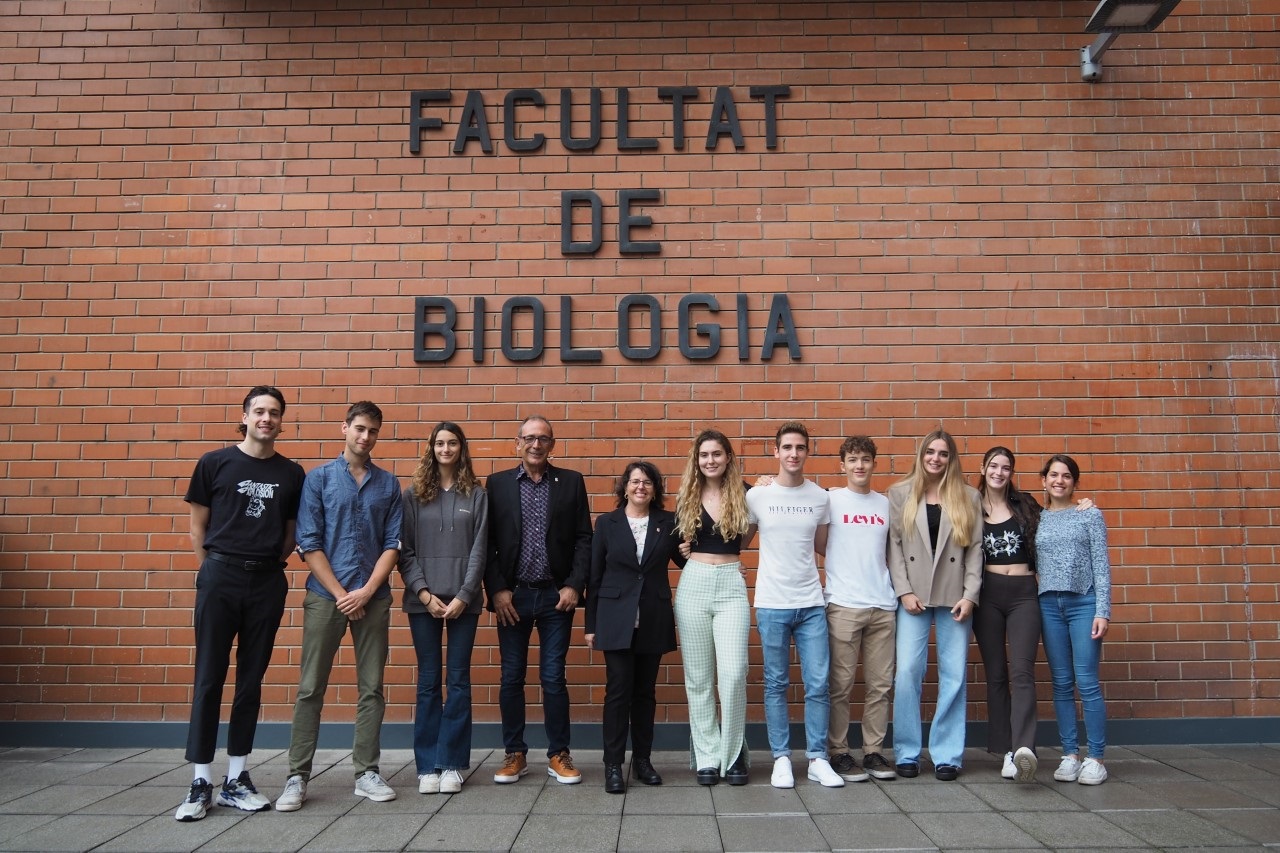Students from the Faculty of Biology in the international iGEM 2022 competition

A team of students of the Faculty of Biology are representing the UB for the first time in the iGEM 2022 competition, an international contest about synthetic biology promoted by the International Genetically Engineered Machine (iGEM) Foundation, which will take place from 26 to 28 October in Paris (France). The competition, which was created in 2003 at the Massachusets Institute of Technology (MIT), reaches its 19th edition this year and will gather 350 teams of young researchers from around the world.

A team of students of the Faculty of Biology are representing the UB for the first time in the iGEM 2022 competition, an international contest about synthetic biology promoted by the International Genetically Engineered Machine (iGEM) Foundation, which will take place from 26 to 28 October in Paris (France). The competition, which was created in 2003 at the Massachusets Institute of Technology (MIT), reaches its 19th edition this year and will gather 350 teams of young researchers from around the world.
The International Genetically Engineered Machine (iGEM) Foundation is an independent non-profit entity dedicated to education, the progress of synthetic biology and the promotion of an open and collaborative community in this knowledge field. Every year, the competition offers the students the opportunity to go beyond the limits of synthetic biology to solve current health and environmental problems using emerging talent, without the restraints of the academic professional research. Using the construction of new devices, the teams explore new approaches and ideas to solve complex problems, ranging from bioremediation to therapeutic treatments and sustainable materials.
Vesiprod, the fight against Burkittʼs lymphoma
This year, the students of the Faculty of Biology are taking part in iGEM with a project called Vesiprod, an initiative that aims to modify a cell line using genetic engineering and synthetic biology techniques for highly purifiable exosomes loaded with RNA interference to treat Burkittʼs lymphoma, which is an aggressive non-Hodgkinʼs lymphoma of B lymphocytes that affects both children and adults.
The team of young students is led by Olalla Ramírez, a graduate in Biomedical Sciences and student of the masterʼs degree in Neurosciences, and Pau Marín, who studied the masterʼs degree in Advanced Immunology. The team is formed by Arnau Vila, Júlia Sánchez, Jaume Ros, Claudia Campos and Claudia Gómez-Pastrana, students of the bachelorʼs degree in Medicine; Neus Muntó, Eva Arribas and Mar Cabello, students of the bachelorʼs degree in Biotechnology; Daniel Saenz, a graduate in Biomedical Sciences; Alejandro Madrid, student of the masterʼs degree in Bioinformatics and graduated in Biochemistry and Biomedical Sciences, and Àlex Bedmar, graduated in Bioinformatics. In this initiative, it is worth noting the scientific support from Professor Manuel Reina, from the Department of Cell Biology, Physiology and Immunology and member of the Research Group Celltec UB, and the experts Gaël Roué, Marcelo Lima and Núria Profitós, from the Josep Carreras Leukaemia Research Institute.
In this exciting project, the young UB students have already managed to involve the University of Barcelona and the companies Palobiofarma and Capital Cell as major sponsors, and they also have the support from the Autonomous University of Barcelona, the Josep Carreras Leukaemia Research Institute, the Foundation Catalunya La Pedrera, the management company Bertomeu Assessors and the Jeroni de Moragas association.
